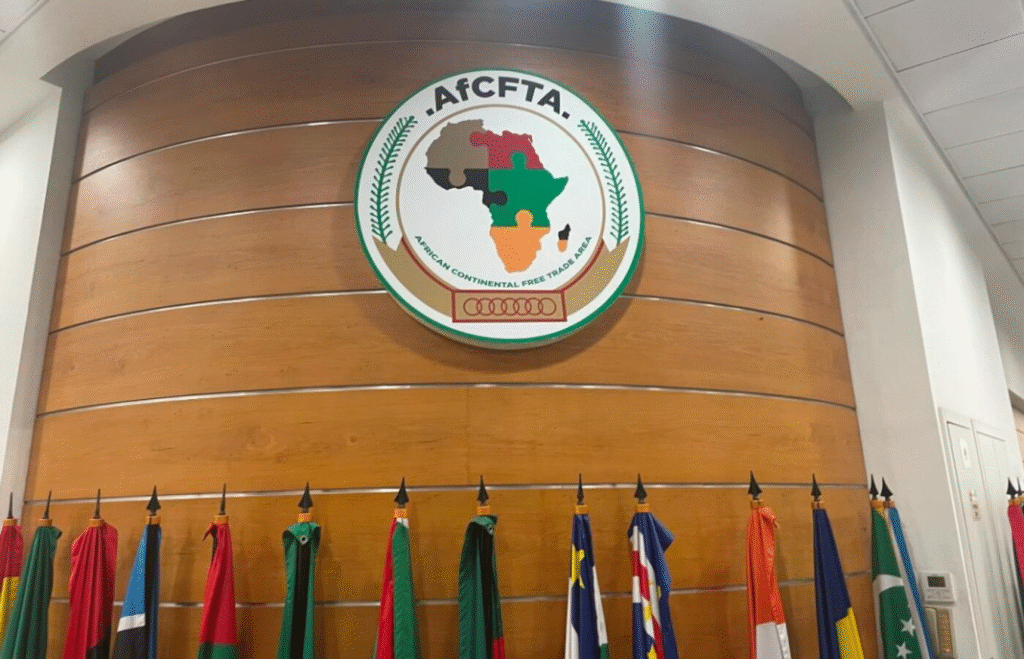OP-ED | Why Ethiopia’s Entry into AfCFTA Trade is a Milestone for Africa’s Economic Transformation, By Bereket Alemayehu
Ethiopia’s commencement of trading under the African Continental Free Trade Area (AfCFTA) marks a historic step for the Horn of Africa nation—and a significant boost for Africa’s collective drive toward economic integration, industrialization, and inclusive growth.

Ethiopia has long been an active participant in shaping international institutions that govern political, economic, and social cooperation. It played a foundational role in establishing the United Nations, International Monetary Fund (IMF), and World Bank, while also championing African unity through the creation of the Organization of African Unity (OAU)—now the African Union (AU)—which it proudly hosts in Addis Ababa.
Among the AU’s core objectives is the promotion of economic integration among Member States through trade and investment agreements that address Africa’s development challenges. In pursuit of this goal, African nations have, over time, established Regional Economic Communities (RECs) such as the Common Market for Eastern and Southern Africa (COMESA) and the Economic Community of West African States (ECOWAS) —initiatives that paved the way for the launch of the African Continental Free Trade Area (AfCFTA).
Consistent with its long-standing commitment to regional cooperation, Ethiopia has actively participated in such sub-regional efforts. However, despite maintaining a pro-integration policy stance, the country had not been part of any Free Trade Area (FTA)—an arrangement that eliminates or reduces tariffs and trade barriers between member countries—until it joined the AfCFTA in 2019.
Ethiopia’s process of World Trade Organization (WTO) accession began in 2003 and has gained momentum in recent years, with completion now targeted for 2026. The country remains a COMESA member but not part of the COMESA FTA, although it grants a 10% tariff reduction on goods originating from COMESA states. It is also an active member of the Intergovernmental Authority on Development (IGAD), which focuses largely on peace, security, and drought resilience.
Ethiopia’s membership and commencement of trading under the AfCFTA mark a historic milestone in its economic diplomacy. While Ethiopia has previously traded with African neighbors such as Kenya and Somalia, the AfCFTA represents its first engagement in a comprehensive, rules-based free trade framework on the continent.
Opportunities and Challenges Ahead
The AfCFTA opens new horizons for Ethiopian businesses—offering easier, more secure access to African markets for exports and investments while providing opportunities to diversify import sources. It also encourages regional value chain integration, enabling industries to source raw materials more efficiently and engage in value addition and industrialization.
For Ethiopian consumers, the AfCFTA promises access to a wider range of goods and services from across Africa, potentially at more competitive prices. Increased competition is expected to drive efficiency, innovation, and productivity among domestic enterprises. However, firms unable to adapt to this more liberalized environment may face significant challenges to survival.
Ensuring Ethiopia’s Success under AfCFTA
To maximize the benefits of AfCFTA participation, Ethiopia must take deliberate steps to strengthen both its public and private sector readiness. Key actions include:
- Enhancing government-private sector collaboration, including training and timely dissemination of trade information.
- Building productive and export capacities, expanding both the volume and diversity of goods traded.
- Improving institutional efficiency and transparency, particularly within regulatory and trade facilitation agencies.
- Encouraging private sector competitiveness through innovation and efficiency to withstand greater continental and, soon, global competition as Ethiopia moves closer to WTO accession.
Ethiopia’s participation in the AfCFTA signals a strategic shift toward continental integration and global competitiveness. With the right policies and partnerships, it could transform from a largely domestic-focused economy into a regional trade hub that drives industrialization, job creation, and sustainable growth across Africa.
Bereket Alemayehu is a part-time lecturer at Addis Ababa University, specializing in regional integration, trade, investment, and related policy issues in Africa. The views expressed in this article are those of the author and do not necessarily reflect the editorial policy of African Newspage.















